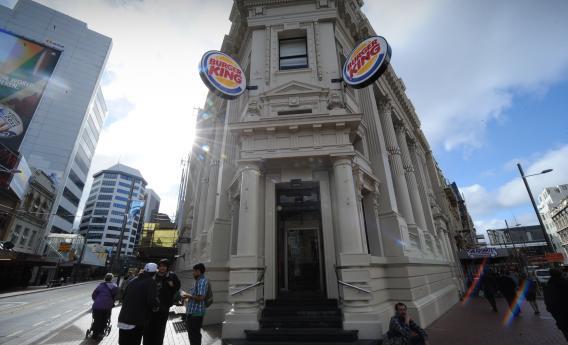The news that the L.A. Clippers’ Caron Butler (once upon a time a key cog in the mediocre Washington Wizards of their mid-aughts heyday) owns a series of Burger King franchises is two years old, but I just read it last night so why not blog about it? One question you might ask about this is why would a person inclined to invest in Burger King choose to own individual Burger King franchises rather than stock in Burger King? The conventional answer is that owning and operating franchises would be smart if you believe you have some expertise in fast food management. But that’s not Caron Butler. So is he just blundering? I don’t think so. Something that from a conventional viewpoint is a bug in franchise investment—the relatively illiquid nature of the investment—is probably actually a feature.
A liquid asset, recall, is one you can easily transform into money if you want to. The great thing about a liquid asset is that if your car breaks and you suddenly need to buy a new one, you can just click “sell” on E-Trade or call your broker and next thing you know you have cash money. A Burger King franchise isn’t like that. You’re not going to be able to sell a teeny $20,000 share of your Burger King in order to get new car money, and if you want fair value for your Burger King you’re not going to be able to sell it in a hurry. Stocks and bonds trade in a market where someone is constantly wanting to buy, so you’re always able to sell and get the market price. An actual Burger King isn’t like that. Liquidity is normally considered a useful attribute in an asset, something that people pay a premium for. But in the case of an NBA player, it may be dangerous.
An NBA player, after all, is someone who really ought to have a very high saving rate. He’s earning a ton of money, but has a very brief expected career duration. He needs to sock lots of money away for a time when his earning power will rapidly diminish. This requires a lot of self-discipline. Not only the discipline to resist spending lots of money on yourself, but the discipline to avoid the social pressure to spend lots of money on others—on family and friends and friends’ family members in need. Under the circumstances, socking as much of the money away as possible in illiquid investments can be a very smart form of precommitment device. If all your money is tied up in Burger King franchises, you don’t really have the capacity to help your best friend’s sister or your sister’s husband and thus are better-prepared for the long run.
